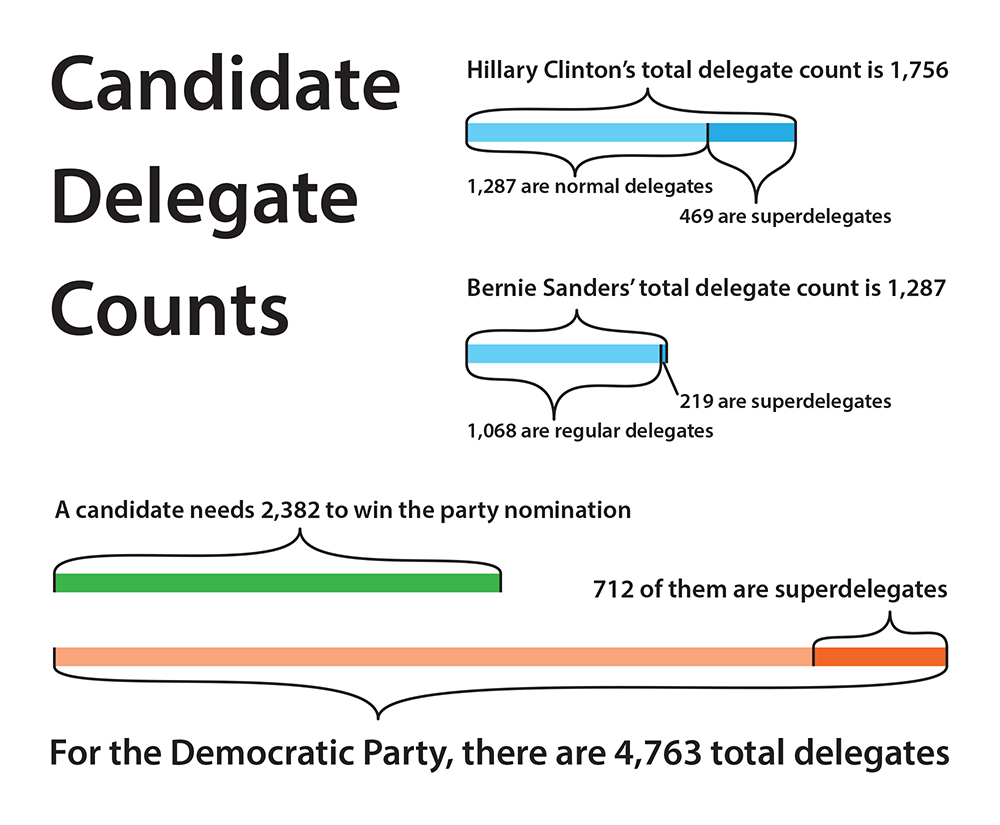For Bernie Sanders supporters, among others, the American presidential election process screams irony when the primary process for the Democratic Party in a democratic nation seems so very undemocratic.
Superdelegate List
Last week, one particular Sanders supporter named Spencer Thayer created the “Superdelegate Hit List,” later changed to the Superdelegate List. This website was meant to make the contact information of the democratic superdelegates available in order to persuade them to vote for Sanders at the convention. Others with similar mindsets created petitions with hundreds of thousands of signatures asking for superdelegates to align themselves with voters. Clearly, superdelegates and their role in the presidential primaries are not winning the hearts of the people at the moment.
For the Democratic Party, there are 4,763 delegates in total, including superdelegates, and a candidate needs 2,382 to win the party nomination. Seven hundred and twelve of those total delegates are superdelegates. Currently, the total delegate count reads 1,756 for Clinton and 1,068 for Sanders. But if you take out the superdelegates from the calculation, Clinton receives 1,287 delegates and Sanders receives 1,037. Without the establishment, we have a much closer race.
Determining the Nominee
Delegates and superdelegates are the ones who determine the party nominee for president at the national convention. Delegates, depending on the state, are either given proportionally or by majority vote based on the voting in the primary or caucus. Essentially, delegates must align with the people. Superdelegates however, can vote for whoever they choose, regardless of who the citizens are supporting.
These superdelegates are party leaders, elected officials, former presidents and other members of the party elite. Until the 1820s, this type of selection of presidential candidates was not uncommon. In the past, members of Congress chose the party’s presidential nominee. But in the mid 1900s, the people began to embrace primary elections. In response, the 1982 Democratic Party leaders felt they lost a lot of their influence in the elections, so they created the superdelegates essentially to ensure they still had power.
An argument can be made in support of the use of superdelegates in elections because they help to secure that no truly terrible or evil candidate may be voted in by the American people. The problem is the establishment gets to decide who the terrible candidates are and they do not necessarily share the same opinion of the people. But in a democracy like the United States, you must trust the people to make the right decision on principle and if you do not like the result, vote differently in the next election. This ensures no one group of people holds all the power.
Heeding the Warning
Most Americans are aware of George Washington’s warning against the creation of political parties. Although we did not heed his warning and political parties do not seem to be disappearing any time soon, the least we could do is not give the establishment machines more power.







